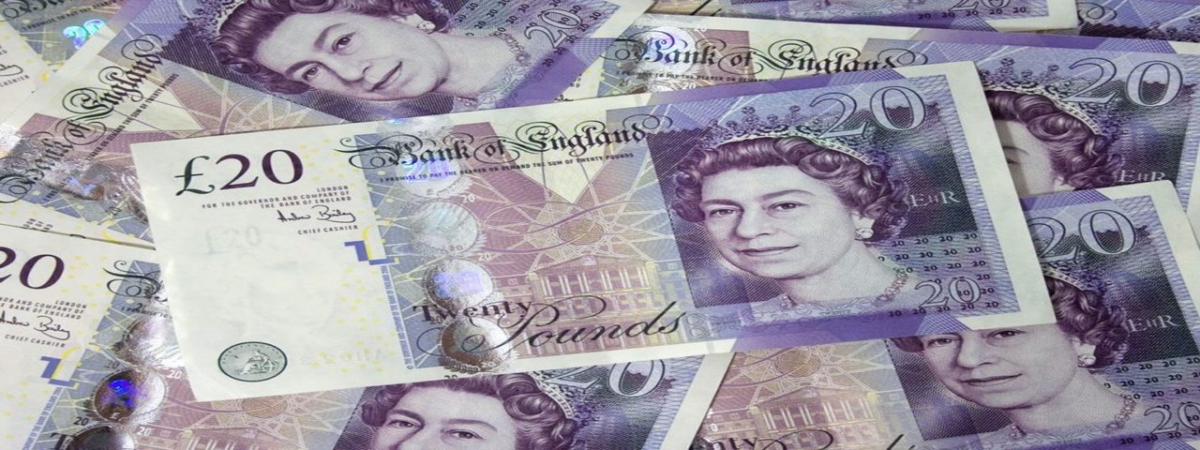Misleading claims on government spending
SUGGESTED



Mercifully, the parties struck something of a truce over the festive break. But in recent days we’ve seen an opening salvo – or, to be more precise, an exchange of posters – which has led the Twitterati and much of the media to jump in to assess the claims made. In particular, the Conservatives’ claim to have ‘halved the deficit’ has been attacked as ‘misleading’, as has Labour’s that ‘the Tories want to cut spending on public services back to the levels of the 1930s’.
Our public debate would be better served if we spent more time taking politicians to task for what they did or did not do rather than how they describe it. But I think there’s been a false equivalence in the narrative surrounding the two posters. The Conservative claim is at the very worst guilty of lack of clarification; Labour’s poster is highly misleading indeed.
According to the OBR, the government’s budget deficit will fall to 5 per cent of GDP this year – half the peak seen in 2009-10. During that period, in cash terms it has fallen from £153 billion in 2009-10 to an estimated £91 billion for 2014-15. It is the contention of some that saying ‘the deficit has halved’ is therefore disingenuous, because the public think of the deficit in cash terms.
Many may do. But while a clarification would be nice, economists largely do use the term ‘deficit’ as a proxy for ‘deficit as a proportion of GDP’. Claiming that the use of the deficit as a proportion of GDP amounts to a deliberate attempt to mislead is therefore very harsh.
Labour’s claim that public services will be cut back to 1930s levels under the Conservatives, ‘when there was no NHS’, is far more guilty of that charge. The evidence for the claim comes from an OBR chart which shows that government consumption spending as a proportion of GDP would, under the government’s current plans, fall to below 15 per cent of GDP by 2020 – a value last seen in the 1930s.
This forgets that the UK was hugely increasing defence spending in the late 1930s – prior to this, government consumption spending was much lower. But perhaps more importantly, restricting our examination of government spending to just ‘consumption’ excludes the huge raft of transfer spending (like subsidies and benefits) that the UK government didn’t undertake before the welfare state.
This matters, because Labour politicians have constantly conflated what the OBR actually said with the idea that cutting overall spending to 35.2 per cent of GDP (as the Conservatives plan to by 2020) would see ‘the state’ at its smallest since the 1930s. This is utterly wrong. A like-for-like comparison, adjusting for appropriate measures of GDP and government spending and for changes in the methodology of official statistics, has been calculated by the economist David B. Smith. This shows that overall spending in 2019-20 would be about 11 percentage points higher as a share of GDP than in 1938 (41.8 per cent versus 30.9 per cent). Far from taking us back to the 1930s, we’d be back to somewhere around 2001.
In a classic IEA book, Arthur Seldon and Ralph Harris noted the irony that politicians (responsible for regulations on advertising) tend to produce the most systematically and incorrigibly dishonest adverts. Any more posters like this and I’ll have perhaps found that rare regulation I might support.
This article was originally published by City AM.
2 thoughts on “Misleading claims on government spending”
Comments are closed.





What is most depressing about the misleading comments and accusations by our leading politicians as we approach a general election is that virtually nobody expects anything better. We have abandoned any hope of a grown-up debate. On the economy, on the European Union, on energy policy, one can count on a mixture of evasions and quarter-truths. Meanwhile our electoral system continues to be grossly unfair. Churchill may have been right in suggesting that democracy, while imperfect, is better than all the other systems that have been tried for choosing a government. Its main advantage — an important one — is that, from time to time, the electorate can throw the rascals out. What we really need, even more than improving our method of choosing who is to be the government, is to limit the powers and scope of government. As I grow older, I more and more agree with Hayek’s comment that, in the course of a very long life, his opinion of politicians had steadily gone downhill.
Thats a very iunteresating article.
Isn’t there another point about labour’s claim: GDP is much higher than back in the 1930’s. So wouldn’t 15% of 1930’s GDP be considerably less than 15% of GDP in 2014/15? I would have thought this meant that governments are spending more today thyan they did in the 1930’s even if the quoted 15% ratio did still apply.